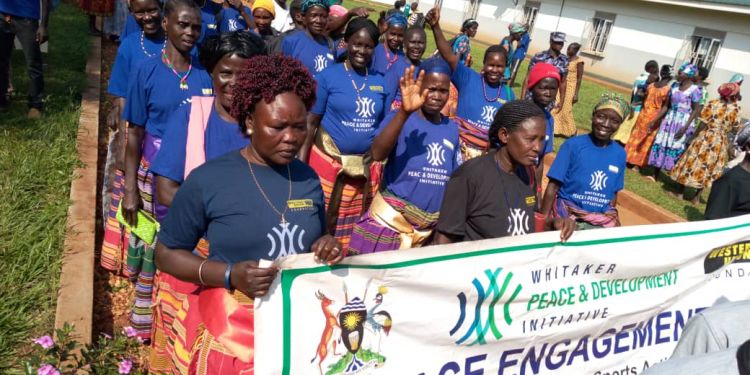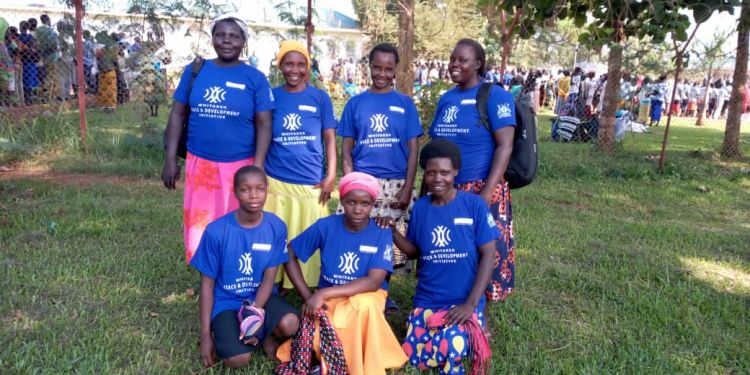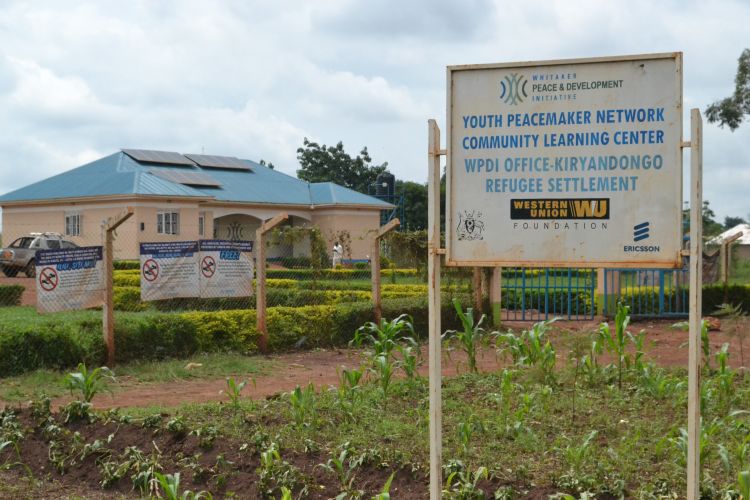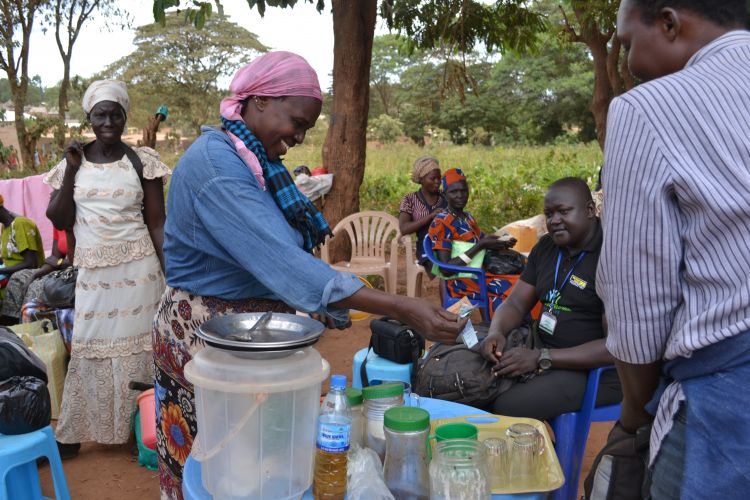A Blog Post from Forest Whitaker

June 20, 2019 – The United Nations High Commissioner for Refugees (HCR) announced yesterday that, this year, the number of people forcibly displaced has reached 70.8 million. This represents an increase from last year, which, at 68.5 million people, was already an all-time high. Of this 70.8 million, 41.3 million are internally displaced, 25.9 million are refugees, and 3.5 million asylum seekers. Every day, 37,000 additional people flee their homes because of conflict, persecution, violence, or human rights violations.
When Filippo Grandi, the Commissioner of the HCR, revealed these numbers, he said something that gave me pause: “What we are seeing in these figures is further confirmation of a longer-term rising trend in the number of people needing safety from war, conflict, and persecution. While language around refugees and migrants is often divisive, we are also witnessing an outpouring of generosity and solidarity, especially by communities who are themselves hosting large numbers of refugees.”

It is telling that the generosity of everyday citizens has to be highlighted by a UN official in such a dramatic way. This is all the more true considering that, as was also revealed yesterday, four out of every five refugees are hosted in countries neighboring their original countries of origin. Considering the map of where conflicts are currently occurring, it is not difficult to guess that most refugees actually reside in developing countries. This means that most of the burden is carried by countries that are in need of assistance in addressing the consequences of the conflicts occurring within their geopolitical neighborhoods.
Without question, we are experiencing a crisis of complex proportions and one that requires an equally sizeable global commitment to resolve. The commitment has to be universal: governments have to do their part, but we all – including citizens and private organizations – have a collective responsibility to human solidarity. There is a wide array of diverse solutions that can be explored. My view is that we should emphasize the capacity of people for initiative and creativity – both among host and refugee communities. My personal approach is that when resources are devoted to programs that empower youths and refugees, they can recover from their experiences, build new lives, and become productive and innovative members of society. This is what I have strived to accomplish for the past seven years through my foundation, the Whitaker Peace & Development Initiative (WPDI).

This experience has taught me a lot on the condition and, above all, the potential for the resilience of young people even when they have been through traumatic challenges. Yet, I have learned also that empowering young people in such conditions requires that people and institutions cooperate. This is where the role of government can be critical – for better or for worse. My work in Uganda has shown me the optimal approach, as I consider Uganda’s refugee policy an example that other countries should seek to emulate. The country is home to more refugees than any other country in Africa and has the third-largest refugee population of any nation, with more than one million of its 1.5 million refugees having arrived within the past two years. There, all asylum seekers – irrespective of their nationality or ethnic affiliation – are welcomed, refugees are given freedom of movement and the right to seek employment, and each refugee family is given a piece of land for their own exclusive agricultural use. In particular, Uganda stipulates that programs for refugees also have to target vulnerable populations from the host communities. These are simple steps when you think about it, but their impact is powerful. In a nutshell, when governments have the courage of common sense and forego prejudices, they can lead to positive transformation. By ensuring that everybody has a stake in helping refugees, Uganda demonstrates that a refugee crisis can be turned into an opportunity for human progress, benefiting both refugees, their host countries and, with hope, eventually the home countries of refugees.
In practice, Uganda’s breakthrough refugee policy has created an enabling environment in which organizations like WPDI have been able to further empower refugees. I have a program active at the Kiryandongo Refugee Settlement, which is home to 65,000 mostly South Sudanese refugees. Needless to say, many of the settlement’s inhabitants have had unthinkable experiences, as South Sudan has been mired in on-and-off civil conflict for 40 of the last 60 years. When they first arrive at the settlement, their experiences come with them, often resulting in tension and even violence breaking out there between tribes and clans of different ethnic backgrounds.

WPDI’s YPN program has, for many, broken that cycle by training youths intensively over the course of a year in areas including Conflict Resolution Education, Information and Communications Technology, and Business and Entrepreneurship so as to empower young people with the tools they need to be at peace with themselves and then bring that peace to their communities. The 40-strong cohort that we have trained at the settlement have truly accomplished some incredible things. Last year, they trained an additional 368 local youths to create a grassroots force to work for peace within the settlement and reached 23,000 settlement residents by conducting 56 Community Dialogues and Radio Talk Shows. Within the settlement, WPDI – thanks to support from the Western Union Foundation – provides 400 youths with scholarships to pursue educational opportunities, taught Conflict Resolution Education to 500 primary and secondary school students so as to foster a culture of peace at an early age, and supports 19 small social impact businesses led by 285 female refugees. The 19 businesses are the first in a series of 81 we plan to help establish within the next two years. Further, our Community Learning Center provided certified trainings in Information and Communications Technology, Business and Entrepreneurship, Conflict Resolution Education, and Arts and Crafts to thousands of refugees and host community members. All of this has been remarkably successful on the ground: the Office of the Ugandan Prime Minister has credited our work with drastically reducing the levels of conflict and violence at the settlement.
The United Nations estimates that nearly half of global refugees are under the age of 18. We must acknowledge that these millions of young people have the capacity to help shape our collective future. Instead of putting up barriers and pushing them away, the international community should embrace them and the people that empower them, just like what has been done in Uganda. For, if we do that, there are many millions of youths just like the ones at the Kiryandongo Refugee Settlement who can be the transformative changemakers we need right now.